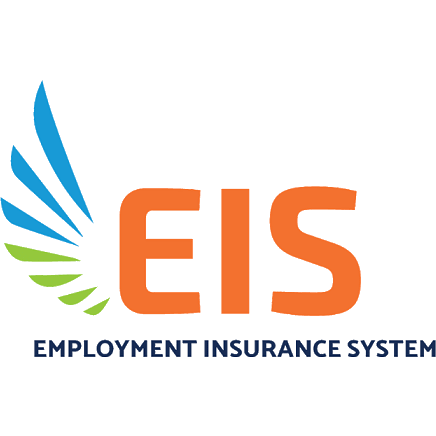This post is also available in:
Bahasa Malaysia
From January 2018, there will be a new contribution for all employees called the Employment Insurance System (EIS) or Sistem Insurans Pekerjaaan (SIP).
The implementation of EIS came into effect once the Employment Insurance System Bill 2017 was passed in the Dewan Rakyat in October 2017, and will be managed by SOCSO.

The EIS is being setup to provide temporary financial assistance to employees who lose their jobs through:
- Retrenchment or redundancy
- Voluntary or Mutual Separation Scheme
- Force majeure such as natural disasters, riot, fire, or gas leak incidents
- Employers absconds, becomes bankrupt, or the business closes down
- Business restructuring, automation, digital technology
- Downsizing
- Constructive dismissal (forced to resign because of employer’s conduct or breach of contract by employers)
- Required to perform work beyond normal scope of duties that would endanger the safety and health of the employee
- Resigned due to personal or family threats, or due to sexual harassment
The financial assistance however, does not cover employees who:
- voluntarily resign,
- whose contracts are not renewed,
- are terminated for disciplinary reasons, or,
- have reached the mandatory retirement age.
Retrenched employees will receive financial assistance on a scale starting from 80% of their last drawn salary, down to 30% in the sixth month. The amount paid out will also depend on how long the employee has been making contributions to EIS.
| 1st month | 80% |
| 2nd month | 50% |
| 3rd month | 40% |
| 4th month | 40% |
| 5th month | 30% |
| 6th month | 30% |
Financial assistance will only commence from 2019.
Contributions
| Employers | 0.2% |
| Employees | 0.2% |
| Total | 0.4% |
Registrations
New employers are required to complete and submit the following
- SIP1 – Employer details
- SIP2 – Employee details
Existing employers will need to complete and submit
- SIP1A – Employer details
- SIP2A – Employee details
The above forms can be downloaded from SOCSO’s website.
Note that registration of employees is the responsibility of the employer.
Employer’s statutory obligations
- Human Resource Development Corporation (HRD Corp)
- Kumpulan Wang Simpanan Pekerja
- Pertubuhan Keselamatan Sosial – Perkeso/SOCSO
- Sarawak Labour Ordinance (Amendment) Bill 2024
Sales Tax and Services Tax 2018
- Broadened Scope of Sales and Service Tax (SST) Effective 1 July 2025
- SST to be implemented from 1st September 2018
Goods and services tax
- What is GST and how does it work?
- GST Tax Codes
- Blocked input tax – Passenger vehicles
- GST at 0% from June 1 2018
- GST updates 2018
Other articles
- Accounting
- Understanding Asset Depreciation Methods
- Understanding Income Statements and Balance Sheets: Why They Are Crucial for Your Business
- What is a Balance Sheet?
- What is a Bank Reconciliation?
- What Is a Cash Flow Statement?
- What is a Profit and Loss (P&L) Statement?
- What is an Asset?
- What is Depreciation?
- Importance of AI in Accounting
- BizSmart: Strategies for Success
- Cash Flow vs Profit: What Every SME Must Know
- Digital Economy Framework Agreement
- Do Small Business Owners Still Need to Understand Accounting?
- Forget About Accounting — Focus on Streamlining Your Business Processes
- From Books to Bots: What SMEs Need to Know About the Evolution of Accounting
- Kaizen Mindset for Small Business Growth
- Long-Term Success: Avoiding Short-Term Traps in Business
- Rethinking How You Think
- Smart Cost Cutting: How Small Businesses Can Save Without Sacrificing Growth
- SWOT Analysis for Small Business Success
- The Advantages of Having Cloud Solutions to Manage Your Business
- The Digital Shift: Why Old Systems Are Holding You Back
- Thriving in the Digital Age
- What is the 80/20 Rule?
- What is the Wright Rule?
- Why SMEs in Malaysia Must Embrace Digital Tools for Growth and Resilience
- Cutting costs?
- The Role of Locus of Control in Managing a Business
- Key Metrics Every Business Should Monitor for Success
- The Impact of Unprecedented Technological Change on Small Business Finances
- The Importance of Monitoring Accounts Receivable
- Challenges of managing a small business
- Achieving Operational Resilience: A Guide for Small Businesses in 2025
- Operational Debt: The Hidden Threat to Small Business Efficiency and Growth
- The Swiss Cheese Theory: A Practical Approach to Risk Management for Small Businesses
- Why Startups Fail
- Understanding Debt Ratio and Its Importance for Small Businesses
- Managing Credit Control for Small Businesses
- Smart Financial Management: Avoiding Pitfalls That Hurt Small Businesses
- Accrual vs Cash Accounting: What Every Small Business Owner Should Know
- Business Development: Focus on Fundamentals, Not Fads
- The Downfall for Any Company Occurs When Prioritizing Short-Term Profits Over Long-Term Sustainability
- Just-in-Time Inventory management
- Payroll
- Smarter HR: Tools, Tips & Strategies for Managing Teams
- Are Employment Contracts Required to Be Stamped in Malaysia?
- Challenges in Employee Offboarding and How to Overcome Them
- Challenges in Employee Onboarding and How to Overcome Them
- Company handbook
- Employee Letter of Engagement
- Employee Onboarding Process Guide
- Employee Register Requirement in Malaysia: What Employers Must Know
- Employee Relations: A Key Function in Human Resources
- Employee Termination Process in Malaysia
- Mandatory Employee Benefits in Malaysia
- Joint Management Corporations (JMCs)
- Time Management: Outsourcing Accounting and Payroll Functions